While Martin Luther King Jr. is remembered as one of America's most impactful civil rights leaders, his father was also an activist who headed the NAACP in Atlanta and led marches in the city.
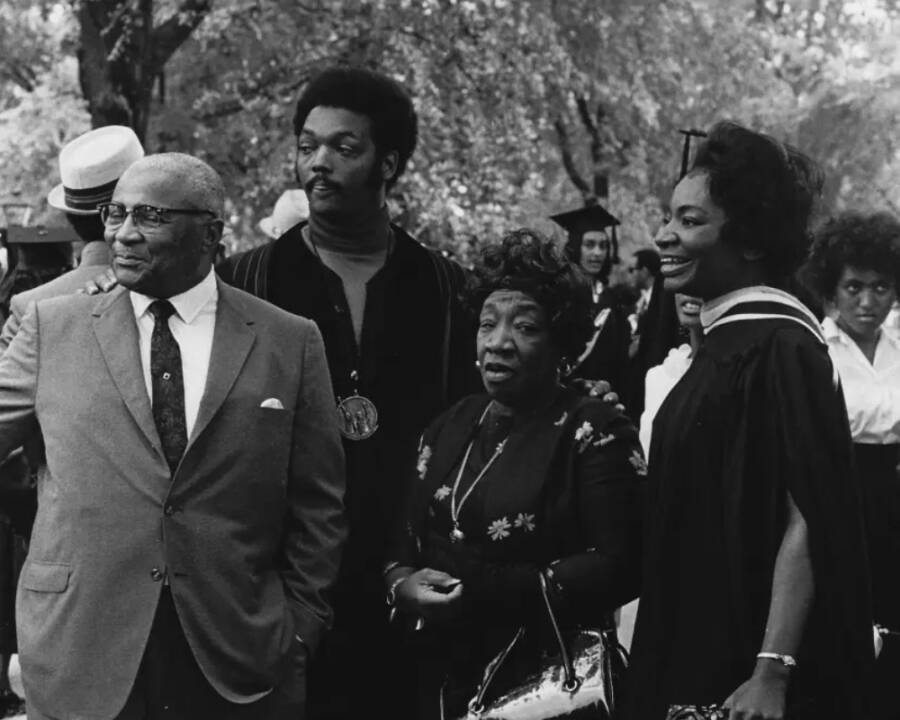
King FamilyMartin Luther King Sr. (left) with Jesse Jackson, wife Alberta Williams King, and daughter Christine King at Christine’s Spelman College commencement ceremony.
Born into the harsh realities of segregation and poverty in the Jim Crow South, Martin Luther King Sr. rose to become a powerful voice for justice, a devoted pastor, and the guiding force behind one of history’s most iconic civil rights leaders.
While working as a preacher in Atlanta, “Daddy King” married Alberta Williams and raised three children, including Martin Luther King Jr. As a minister at Ebenezer Baptist Church, King Sr. became an active figure in the Civil Rights Movement, joining organizations like the NAACP and inspiring his son to follow in his footsteps. His influence was pivotal in shaping Martin Luther King Jr.’s determination to fight for equality.
Ultimately, King Sr. experienced profound tragedies, including the assassination of his son in 1968, the drowning of his younger son Alfred a year later, and the murder of his wife in 1974. These losses cast a bleak shadow over his life, though he remained steadfast in his faith and commitment to justice.
Martin Luther King Sr. passed away in 1984, leaving behind a legacy of resilience and faith in the history of the fight for civil rights in the United States.
The Early Life And Upbringing Of Martin Luther King Sr.
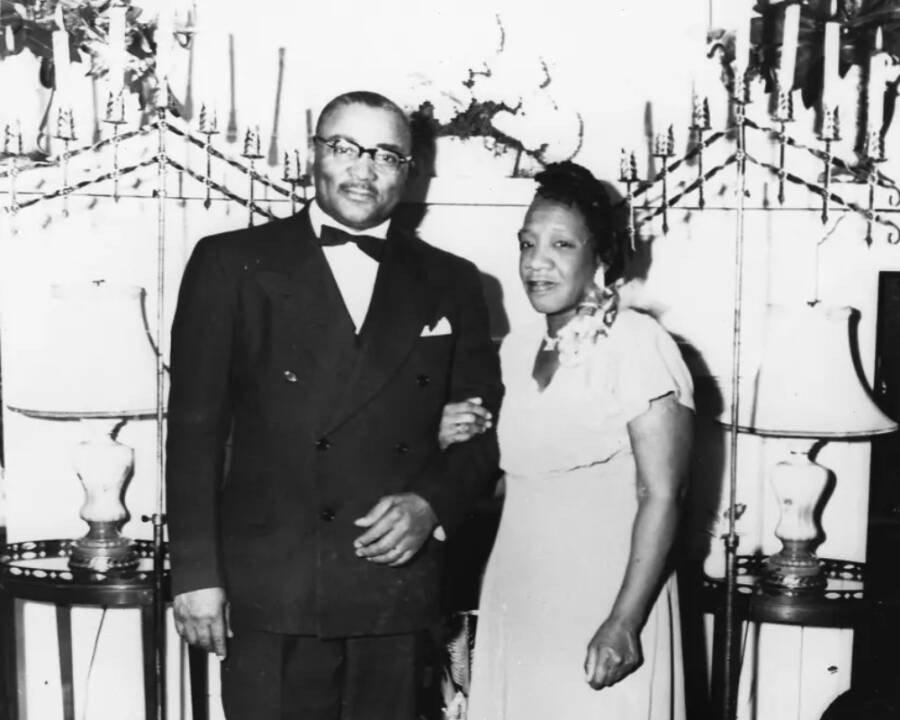
King FamilyMartin Luther King Sr. married Alberta Williams in 1926, and they raised three children together.
Martin Luther King Sr. was born Michael King in Stockbridge, Georgia, on Dec. 19 in either 1897 or 1899, depending on the source. His parents were sharecroppers, and he was raised in poverty, working in the fields and attending Stockbridge Colored School only a few months out of the year.
“We had no books, no materials to write with, and no blackboard,” he wrote in his autobiography, according to The Martin Luther King, Jr. Research and Education Institute at Stanford University. “But I loved going.”
Martin Luther King Sr.’s father, James King, was an abusive alcoholic, and as a child, King Sr. once had to step in as his dad assaulted his mother, Delia. Delia made sure her children had a religious upbringing, and the family attended Floyd Chapel Baptist Church in Stockbridge. There, King Sr. developed an interest in preaching, and he reportedly practiced his eulogies on chickens.
Then, in 1918, King Sr. moved to Atlanta. He boarded at the home of a Baptist minister named A. D. Williams and began courting his daughter, Alberta Williams. The Williams family encouraged King Sr. to continue his education, so the young man finished high school at Bryant Preparatory School while preaching at several local churches.
Martin Luther King Sr. and Alberta Williams wed in 1926, the same year King Sr. was admitted to Morehouse College to study theology. A year later, the couple had their first child, a daughter named Willie Christine. Then, in 1929, they welcomed a son, Martin Luther King Jr. (born Michael King Jr.). And in 1930, just after King Sr. graduated with his bachelor’s degree, they had their final child, Alfred Daniel.
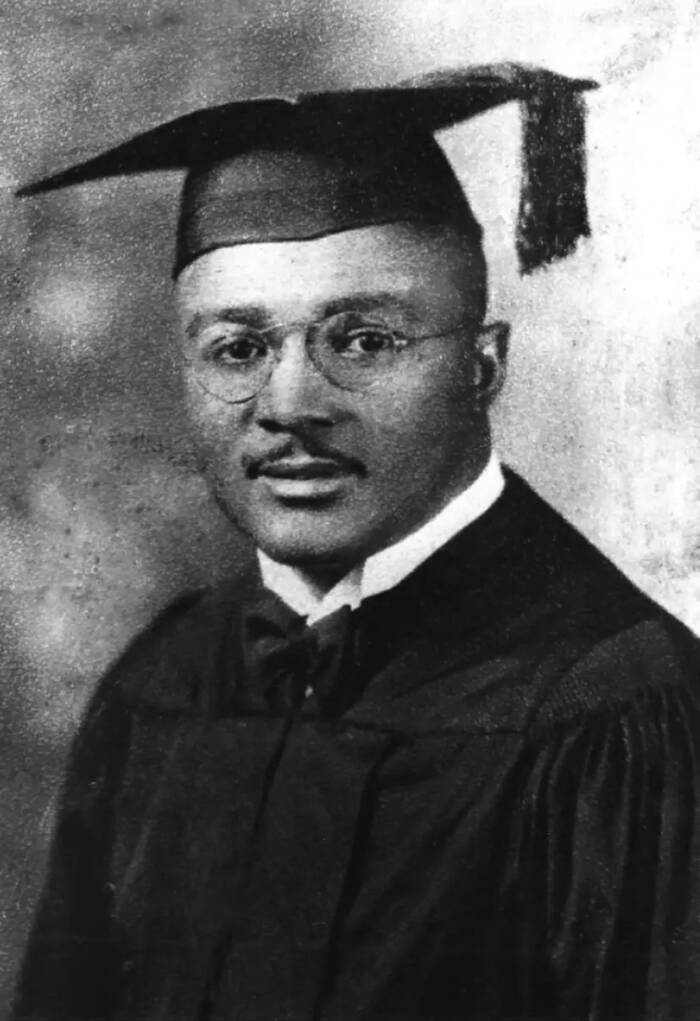
King FamilyMLK Sr. upon his graduation from Morehouse College in 1930.
King Sr. had put himself through school by working as a mechanic’s helper and a railroad firefighter, but when A. D. Williams died a year after his graduation, Martin Luther King Sr. took his spot as the minister of Atlanta’s Ebenezer Baptist Church. He often used his position to preach about equality and speak out against racial injustice.
In 1934, King Sr. traveled to Germany to attend a World Baptist Alliance meeting, and while there, he learned about Martin Luther and the Protestant Reformation. Upon his return to the United States, he officially changed his name — and the name of his son — from Michael to Martin Luther.
Around the same time, King Sr. became deeply involved in the growing Civil Rights Movement, and soon, he and his son would become leading figures.
A Father And Son’s Close Relationship In The World Of Civil Rights
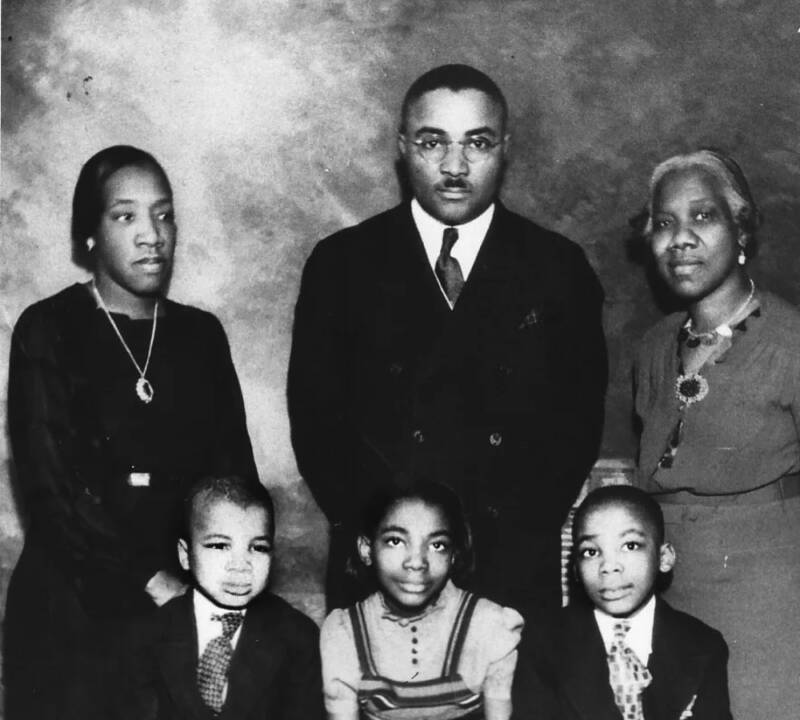
King FamilyA King family photo taken in 1939. Clockwise from top left: Alberta Williams King, Martin Luther King Sr., Jeannie C. Parks Williams (Alberta’s mother), Martin Luther King Jr., Christine King, Alfred Daniel King.
Beginning in the 1930s, Martin Luther King Sr. became publicly involved in the struggle for racial equality in the United States. At the time, the “separate but equal” doctrine established by Plessy v. Ferguson was still in effect across the American South.
King Sr. began protesting through acts of defiance, such as riding the “whites only” elevator at Atlanta’s City Hall. He became a leader of the Atlanta chapter of the National Association for the Advancement of Colored People (NAACP) and the Atlanta Civic and Political League. He also led a voting rights march in the late 1930s and spoke to activists at his church, once telling a crowd of 1,000, “I ain’t gonna plow no more mules. I’ll never step off the road again to let white folks pass.”
Perhaps most importantly, he inspired his son, Martin Luther King Jr., to pursue a career in both ministry and activism.
One time, King Jr. and his father were stopped by a police officer. When the officer called King Sr. “boy,” he set an example for his young son. As King Jr. later recalled, his father pointed at him and told the deputy, “This is a boy. I’m a man, and until you call me one, I will not listen to you.”
Martin Luther King Jr. wrote of another incident in his autobiography. He and his father were shopping at a shoe store when a clerk asked them to sit at the back of the room due to their race. King Sr. refused and left the business, telling his son, “I don’t care how long I have to live with this system, I will never accept it.”
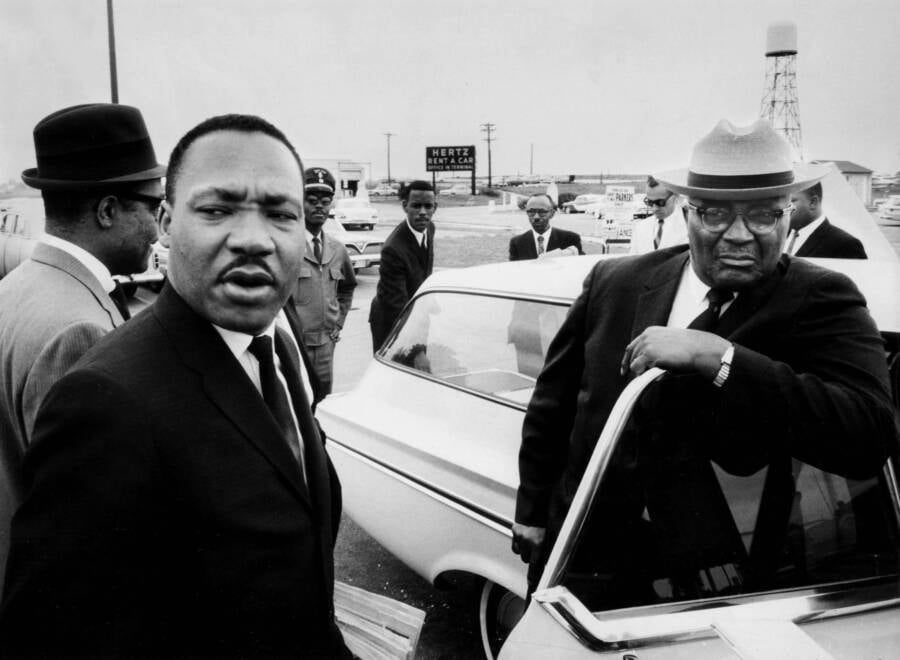
ZUMA Press Inc/Alamy Stock PhotoMartin Luther King Sr. (right) and his son, Martin Luther King Jr., at the Memphis airport in 1963.
It’s clear that King Sr. had a meaningful impact on his son. As King Jr. wrote in his autobiography, “I think that my strong determination for justice comes from the very strong, dynamic personality of my father… I have rarely ever met a person more fearless and courageous than my father… The thing that I admire most about my dad is his genuine Christian character. He is a man of real integrity, deeply committed to moral and ethical principles.”
While Martin Luther King Sr. was proud of his son’s activism, he also worried about his safety — and his biggest fear was realized in April 1968.
The Death Of MLK Jr. And The Legacy Of Martin Luther King Sr.
While King Sr. was heavily involved in the Civil Rights Movement, King Jr. took things a step further. “Daddy King” often supported MLK Jr. from the sidelines and prayed for his son’s protection as he watched him carry out countless boycotts and demonstrations.
“I could only be deeply impressed with his determination,” King Sr. wrote in his memoir. “There was no hesitancy for him in this journey.”
However, King Sr. was never more proud of his son than when Martin Luther King Jr. was awarded the Nobel Peace Prize in 1964. He traveled to Oslo to watch his child receive the award.
“As M. L. stood receiving the Nobel Prize, and the tears just streamed down my face, I gave thanks that out of that tiny Georgia town I’d been spared to see this and so much else,” King Sr. later recalled.
However, with the light came darkness, and the King family was quickly hit with several tragedies in a short span of time.
On April 4, 1968, Martin Luther King Jr. was shot and killed outside of a motel in Memphis by James Earl Ray.
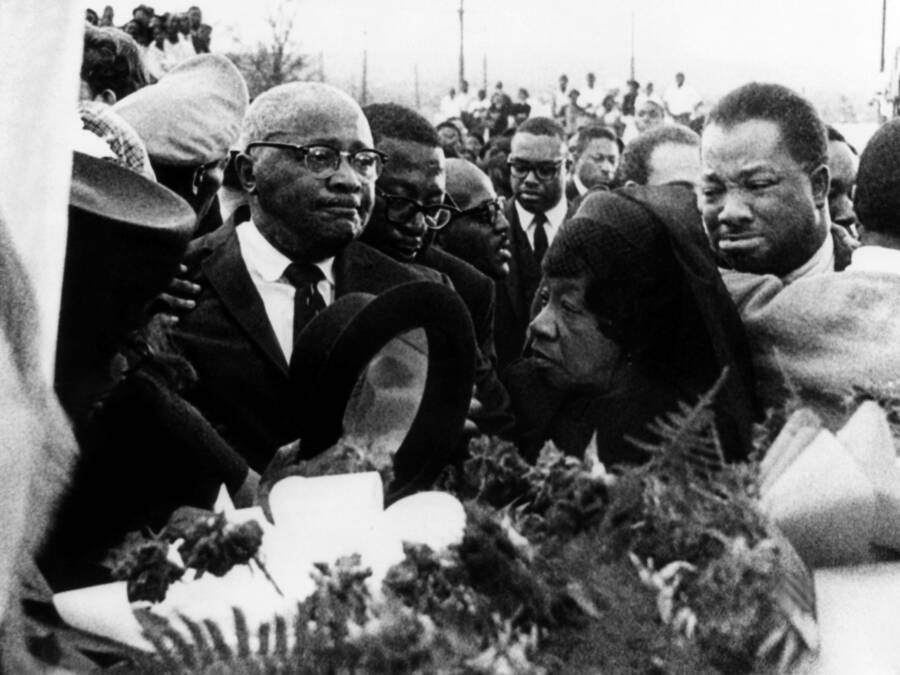
Everett Collection Inc/Alamy Stock PhotoMartin Luther King Sr., his wife Alberta, and his son Alfred Daniel mourn at the funeral of MLK Jr. in 1968.
“My first son, whose birth had brought me such joy that I jumped up in the hall outside the room where he was born and touched the ceiling — the child, the scholar, the preacher, the boy singing and smiling, the son — all of it was gone,” King Sr. wrote in his autobiography.
A year later, Alfred Daniel King suddenly died in a mysterious drowning incident just days before his 39th birthday. Then, on June 30, 1974, Alberta King was assassinated by Marcus Wayne Chenault, a Black Hebrew Israelite, while playing the organ one Sunday morning at Ebenezer Baptist Church. Chenault later revealed that King Sr. was his true target, but he wasn’t preaching that day.
Undoubtedly, King Sr. struggled with these profound losses in the last few years of his life. From the beginning, he knew that the work of his family was inherently dangerous, but the deaths left scars nonetheless.
“We had been aware of the dangers, each out of our own experiences with the South we knew — MLK Jr., his mother, and I. A time had come. To avoid it was impossible, even as avoiding the coming of darkness in the evening would have been impossible,” King Sr. wrote.
On Nov. 11, 1984, Martin Luther King Sr. died from a heart attack at an Atlanta hospital. Although his later life had been marked by tragedy, he never wavered in his faith or his belief in equality. As reported in his New York Times obituary, King Sr. said during a speech in 1976, “I do not hate the man who took the life of my dead son. I am not going to hate the young man who came and killed my wife. I am every man’s brother.”
After reading about the life of Martin Luther King Sr., go inside the tragic story of Scott Davidson, the father of actor and comedian Pete Davidson. Then, read the heartwarming story of Steve Ross, the son of celebrity painter Bob Ross.





